W16: Workshop on Edge-based AI Applications over B5G/6G Evolution
Organizer: Tarik Taleb, University of Oulu, Finland
Organizer: Kei Sakaguchi, Tokyo Institute of Technology, Japan
Organizer: Haris Gačanin, RWTH Aachen University, Germany
Organizer: Tareq Amin, Rakuten Mobile, Japan
Keynote Speaker: Walid Saad, Virginia Tech, USA
Keynote Speaker: Tareq Amin, Rakuten Mobile, Japan
Keynote Speaker: Dario Sabella, Intel, USA
TPC Co-chair: Marco Mezzavilla, New York University, USA
TPC Co-chair: Anil Kumar Panwar, Rakuten Mobile, Japan
TPC Co-chair: Felipe Augusto Pereira de Figueiredo, Inatel, Brazil
TPC Vice-chair: Jin Nakazato, Rakuten Mobile, Japan
Publicity Co-chair: Francisco Falcone, Public University of Navarre, Spain
Publicity Co-chair: Kazuki Maruta, Tokyo Institute of Technology, Japan
Abstract: Discussions about Beyond 5G (B5G)/6G have started worldwide, and we are now about to enter the age of the super-smart society. Fully virtualized networks and multi-access edge computing (MEC) are key enabler technologies to support this new social infrastructure. These technologies will enable the creation of various kinds of application services that can fully leverage the potential of 5G: enhanced mobile broadband, ultra-reliable low latency, and massive connectivity. In the age of B5G/6G, innovation in networks and artificial intelligence (AI) will further boost this movement. To date, the network has been regarded as a simple pipe to connect user equipment and cloud servers that host applications. Incorporating AI into edge computing will enable end-to-end automated self-aware networks, including wireless/physical networks on virtualized platforms. MEC and virtualized networks support AI mission-critical services such as V2X. That’s why this workshop aims to build a pioneering community to discuss future directions on “virtualized edge-based AI networks” and related technologies. Specifically, the scope includes access/core network architecture to support micro-service functions, fully virtualized platforms, edge/cloud cooperation functionality, and intelligent/autonomous network applications such as resource management. Furthermore, close collaboration with academia and industries can produce new inspiration for future standardization, such as 3GPP Release 18/19 and O-RAN. This workshop will accept recent achievements of theoretical, simulative work as well as proofs-of-concept.
- MEC for intelligent networks
- MEC for mission-critical applications
- AI-enabled edge/cloud cooperation
- Enhanced intelligent network slicing for edge platforms
- QoS/QoE assurance support
- Edge AI enhancement for reconfigurable wireless network design and optimization
- Edge AI empowered VR/AR/XR application services
- Digital twin platforms enabled by intelligent networks
- Cloud-native RAN
- SDN/NFV orchestration based on autonomous learning: algorithm and frameworks
- Local area data analysis for smart cities
- Proofs-of-concept of next-generation edge AI networks
- Platform and standardizations of MEC-enabled AI networks
Program for 19 June 2022
| Time Schedule | Category | Note |
| 9:00 – 9:10 | Welcome Speech | – |
| 9:10 – 9:50 | Keynote I. | Walid Saad |
| 9:50 – 11:30 | Oral Session I.
(5 Presentations) |
(15min Presentation + 5min Q&A) |
| 11:30 – 14:00 | Lunch Time | – |
| 14:00 – 14:40 | Keynote II. | Tareq Amin / Anil Kumar Panwar |
| 14:50 – 15:30 | Oral session II.
(2 Presentations) |
(15min Presentation + 5min Q&A) |
| 15:30 – 16:00 | Coffee Break | – |
| 16:00 – 16:40 | Keynote III. | Dario Sabella |
| 16:40 – 16:50 | Closing Speech | – |
Oral Session I.
[1] Task Scheduling with Collaborative Computing of MEC System Based on Federated Learning (Tianyi Shi, Hongfeng Tian, Tiankui Zhang, Jonathan Loo, Jiangtao Ou, Chengyuan Fan, Dingcheng Yang, Nanchang University)
[2] Structured Sparse Ternary Compression for Convolutional Layers in Federated Learning (Alessio Mora, Luca Foschini, Paolo Bellavista)
[3] Towards Deep Learning-Guided Multiuser SNR and Doppler Shift Detection for Next-Generation Wireless Systems (Shun Kojima, Yi Feng, Kazuki Maruta, Kanemitsu Ootsu, Takashi Yokota, Chang-Jun Ahn, Vahid Tarokh)
[4] Proof-of-Concept of Distributed Optimization of Micro-Services on Edge Computing for Beyond 5G (Jin Nakazato, Mitsuhiro Kuchitsu, Anil Pawar, Soh Masuko, Keishi Tokugawa, Keiichi Kubota, Kazuki Maruta, Kei Sakaguchi)
[5] Mobile User Trajectory Prediction Based on Machine Learning (Ya Liu, Hongwen Yang, Rui Huang)
Oral Session II.
[6] Edge Intelligence in Mobile Nodes: Opportunistic Pipeline via 5G D2D for On-site Sensing (Terry Guo, Hawzhin Mohammed, Syed R. Hasan)
[7] Object Recognition Network using Continuous Roadside Cameras (Gunhee Cho, Yusuke Shinyama, Jin Nakazato, Kazuki Maruta, Kei Sakaguchi)
Keynote Speaker Bios:
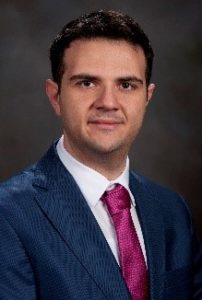 Walid Saad
Walid Saad
Title: Towards AI-Native Wireless 6G Systems
Bio: Walid Saad (S’07, M’10, SM’15, F’19) received his Ph.D degree from the University of Oslo in 2010. He is currently a Professor at the Department of Electrical and Computer Engineering at Virginia Tech, where he leads the Network sciEnce, Wireless, and Security (NEWS) laboratory. His research interests include wireless networks, machine learning, game theory, security, unmanned aerial vehicles, cyber-physical systems, and network science. Dr. Saad is a Fellow of the IEEE and an IEEE Distinguished Lecturer. He is also the recipient of the NSF CAREER award in 2013, the AFOSR summer faculty fellowship in 2014, and the Young Investigator Award from the Office of Naval Research (ONR) in 2015. He was the author/co-author of ten conference best paper awards at WiOpt in 2009, ICIMP in 2010, IEEE WCNC in 2012, IEEE PIMRC in 2015, IEEE SmartGridComm in 2015, EuCNC in 2017, IEEE GLOBECOM in 2018, IFIP NTMS in 2019, IEEE ICC in 2020, and IEEE GLOBECOM in 2020. He is the recipient of the 2015 Fred W. Ellersick Prize from the IEEE Communications Society, of the 2017 IEEE ComSoc Best Young Professional in Academia award, of the 2018 IEEE ComSoc Radio Communications Committee Early Achievement Award, and of the 2019 IEEE ComSoc Communication Theory Technical Committee. He was also a co-author of the 2019 IEEE Communications Society Young Author Best Paper and of the 2021 IEEE Communications Society Young Author Best Paper. From 2015-2017, Dr. Saad was named the Stephen O. Lane Junior Faculty Fellow at Virginia Tech and, in 2017, he was named College of Engineering Faculty Fellow. He received the Dean’s award for Research Excellence from Virginia Tech in 2019. He currently serves as an editor for the IEEE Transactions on Mobile Computing and the IEEE Transactions on Cognitive Communications and Networking. He is an Area Editor for the IEEE Transactions on Network Science and Engineering, an Associate Editor-in-Chief for the IEEE Journal on Selected Areas in Communications (JSAC) – Special issue on Machine Learning for Communication Networks, and an Editor-at-Large for the IEEE Transactions on Communications.
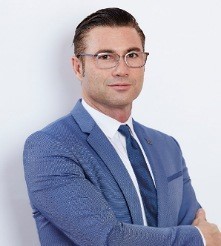 Tareq Amin
Tareq Amin
Bio: Tareq Amin joined Rakuten Group in 2018 as the first chief technology officer of Rakuten Mobile and led the design and roll-out in Japan of the world’s first fully virtualized cloud-native mobile network. In 2021, Amin was appointed as chief executive officer of Rakuten Symphony, a Rakuten Group company launched in August 2021 with a vision to reimagine telecom for a hyperscale era, delivering the convergence of IT and telecom networks. Under Amin’s leadership, Rakuten Symphony draws on the proven technologies and operating principles of hyperscale leaders, to create a unique offering: a modern, industrial-scale automation platform built specifically for telecom. In 2022, Amin was appointed as chief executive officer of Rakuten Mobile to ignite the next stage of growth in Japan and drive synergies between the global business and Rakuten Mobile. With a career in the mobile network industry spanning almost two decades, prior to joining Rakuten in 2018, Amin was a key contributor to the transformation of the mobile industry in India as Senior Vice President of Technology Development and Automation for Reliance Jio. Prior to that, he served as Vice President of Carrier Solutions for Huawei and as Senior Director of National Planning & Performance at T-Mobile. Amin holds a bachelor’s degree in Electrical Engineering and Physics from Portland State University in Oregon.
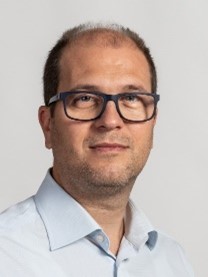 Dario Sabella
Dario Sabella
Bio: DARIO SABELLA works with INTEL as Senior Manager Standards and Research, driving new technologies and edge cloud innovation for advanced systems, involved in ecosystem engagement and coordinating internal alignment on edge computing across standards and industry groups. In February 2021 has been elected as Chairman of ETSI MEC (Multi-access Edge Computing), while from 2019 he was serving as vice-chairman, previously Lead of Industry Groups, and from 2015 vice-chair of IEG WG. Since 2017 he is also delegate of 5GAA (5G Automotive Association) and Lead of gMEC4AUTO in 5GAA. Before 2017 he worked in TIM (Telecom Italia group), as responsible in various research, experimental and operational activities on OFDMA technologies (WiMAX, LTE, 5G). He is Innovation Manager at 6G Flagship EU project Hexa-X. Author of several publications (40+) and patents (30+) in the field of wireless communications, energy efficiency and edge computing, Dario is IEEE senior member and has also organized several international workshops and conferences.
Co-chair Bios:
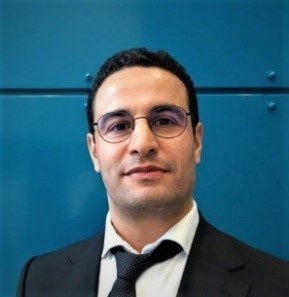 Tarik Taleb
Tarik Taleb
Bio: Tarik Taleb is Professor the Center of Wireless Communications, University of Oulu, Finland. He is the founder and director of the MOSA!C Lab (www.mosaic-lab.org).. Prior to his current positions, he was working as Senior Researcher and 3GPP Standards Expert at NEC Europe Ltd, Heidelberg, Germany. Before joining NEC and till Mar. 2009, he worked as assistant professor at the Graduate School of Information Sciences, Tohoku University, Japan. From Oct. 2005 till Mar. 2006, he worked as a research fellow at the Intelligent Cosmos Research Institute, Sendai, Japan. He received his B. E degree in Information Engineering with distinction, M.Sc. and Ph.D. degrees in Information Sciences from Tohoku Univ., in 2001, 2003, and 2005, respectively. Prof. Taleb’s research interests lie in the field of telco cloud, network softwarization & slicing, edge computing, AI-based software defined security, immersive communications, & next generation mobile networking. Prof. Taleb is the recipient of the 2017 IEEE ComSoc Communications Software Technical Achievement Award (Dec. 2017) for his outstanding contributions to network softwarization. He is also the (co-) recipient of several awards such as the 2017 IEEE Communications Society Fred W. Ellersick Prize (May 2017), the 2009 IEEE ComSoc Asia-Pacific Best Young Researcher award (Jun. 2009), , and the Young Researcher’s Encouragement Award from the Japan chapter of the IEEE Vehicular Technology Society (VTS) (Oct. 2003). Some of Prof. Taleb’s research work have been also awarded best paper awards at prestigious IEEE-flagged conferences.
 Kei Sakaguchi
Kei Sakaguchi
Bio: Kei Sakaguchi received the M.E. degree in Information Processing from Tokyo Institute Technology in 1998, and the Ph.D degree in Electrical & Electronic Engineering from Tokyo Institute Technology in 2006. Currently, he is working at Tokyo Institute of Technology in Japan as a Dean in Tokyo Tech Academy for Super Smart Society and as a Professor in School of Engineering. At the same time, he is working for oRo Co.,Ltd. in Japan as an outside director. He received lots of paper awards from IEICE. He served as a TPC co-chair in ICST CrownCom in 2011, General co-chairs in IEEE WDN-CN in 2012~2015, a TPC co-chair in IEEE RFID-TA in 2015, a General co-chair of IEEE CSCN in 2015, a TPC co-chair in IEEE 5GSummit in 2016, an Industrial Panel co-chair in IEEE Globecom in 2017, General co-chairs in IEEE WDN-5G in 2017 and 2018, and a General co-chair of IEEE WDN-5G&6G in 2020. His current research interests are in 5G cellular networks, millimeter-wave communications, wireless energy transmission, V2X for automated driving, and super smart society. He is a fellow of IEICE, and a senior member of IEEE.
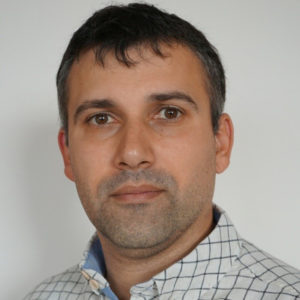 Haris Gačanin
Haris Gačanin
Bio: Haris Gačanin (IEEE SM’13–F’20) received his Dipl.-Ing. degree in Electrical engineering from the University of Sarajevo in 2000. In 2005 and 2008, respectively, he received MSc and Ph.D. from Tohoku University in Japan. He was with Tohoku University from 2008 until 2010, first as a Japan Society for the Promotion of Science (JSPS) postdoctoral fellow and later as an Assistant Professor. He joined Alcatel-Lucent Bell (now Nokia Bell) in 2010 as a Physical-layer Expert and later moved to Nokia Bell Labs as Department Head. Since April 2020, he has joined RWTH Aachen University. He is the head of the Chair for Distributed Signal Processing and co-director of the Institute for Communication Technologies and Embedded Systems. His professional interests are related to broad areas of digital signal processing and artificial intelligence with applications in wireless communications. He is a fellow of IEEE and a distinguished lecturer of IEEE Vehicular Technology Society with numerous scientific publications (journals, conferences, and patents) and invited/tutorial talks. He is a recipient of several Nokia innovation awards, IEICE Communications Society Best Paper Award in 2021, IEICE Communication System Study Group Best Paper Award (joint 2014, 2015, 2017), The 2013 Alcatel-Lucent Award of Excellence, the 2012 KDDI Foundation Research Award, the 2009 KDDI Foundation Research Grant Award, the 2008 JSPS Postdoctoral Fellowships for Foreign Researchers, the 2005 Active Research Award in Radio Communications, 2005 Vehicular Technology Conference (VTC 2005-Fall) Student Paper Award from IEEE VTS Japan Chapter and the 2004 Institute of IEICE Society Young Researcher Award. Furthermore, he served as an Associate Editor of IEEE Communications Magazine, associate editor of IEICE Transactions on Communications and IET Communications. In addition, he acted as a general chair and technical program committee member of various IEEE conferences.
 Tareq Amin
Tareq Amin
Bio: Tareq Amin, CTO of Rakuten Group and CTO of Rakuten Mobile, is leading the design and rollout of the company’s next generation fully virtualized cloud native mobile network in Japan. Leveraging technologies across the cloud, virtualization, Open RAN and end-to-end automation, the Rakuten Mobile network offers greater flexibility, scalability, security and resiliency, and revolutionizes the way mobile services are provided and consumed. Full-scale commercial 4G service began in April 2020, with 5G service launch following in September of the same year. Amin is also the CEO of Rakuten Symphony, a newly launched business organization created to empower the global adoption of cloud-native open RAN infrastructure and services — including the Rakuten Communications Platform (RCP) — by mobile network operators, enterprises and government bodies. With a career in the mobile network industry of almost two decades, prior to joining Rakuten in 2018, Amin was a key contributor to the transformation of the mobile industry in India as Senior Vice President of Technology Development and Automation for Reliance Jio. Prior to that, he served as Vice President of Carrier Solutions for Huawei and as Senior Director of National Planning & Performance at T-Mobile. Amin holds a bachelor’s degree in Electrical Engineering and Physics from Portland State University in Oregon.
Deadlines:
Workshop paper submissions due EXTENDED: 23 March 2022
Acceptance notification: 17 April 2022
Final paper submission due: 1 May 2022
For additional information, please visit: https://edge-ai.wixsite.com/vtc22s
To submit a paper to this workshop, please visit: https://vtc2022s-rr-wks.trackchair.com/track/2051
